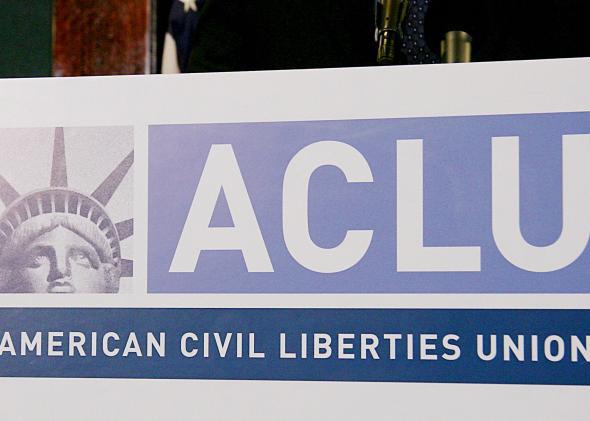This week, a slew of major gay rights groups loudly withdrew their support for the current version of ENDA, an LGBT non-discrimination bill that passed the Senate last fall and has languished in the Republican-controlled House ever since. According to these organizations, the Supreme Court’s recent Hobby Lobby ruling has convinced them that a sizable religious exemption could seriously undermine the law’s aims, giving religiously affiliated groups freedom to discriminate.
But as BuzzFeed’s Chris Geidner astutely notes, this isn’t a legal move so much as it is a political and moral one. The ACLU et al. don’t really care what the current version of ENDA looks like, since it has virtually no chance of becoming law. Instead, gay rights organizations are setting up the stakes for the next battle, putting Congress on guard for renewed resistance to the kind of religious exemptions that moderate Republicans love to stick into gay rights bills.
This strategy amounts to a major gamble. In the quaint, pre–Hobby Lobby world, many LGBTQ advocates (including me) were happy with any kind of ENDA: The hope was that even a weak bill would burst the dam and leave room for future measures rolling back the religious exemptions. The ACLU and its allies, however, have decided to switch tactics, seizing on the Hobby Lobby backlash to push an all-or-nothing platform.
I appreciate the educational aspect of this campaign, since I doubt most Americans really understand the difference between a traditional ministerial exception (which exempts religious leaders and employees who perform religious tasks) and exceptions for religiously affiliated institutions (which would let Catholic hospitals fire a gay janitor). The former is a constitutional mandate; the latter is an unacceptable overreach of state-sanctioned prejudice. As the battle over “religious liberty” heats up across the country, this is a good teaching moment to help Americans grasp the distinction between true religious freedom and a special right to discriminate.
If gay rights groups fail to persuade the next ENDA-friendly Congress of the danger of religious exemptions, however, the new strategy is certain to backfire. Most major LGBTQ advocates are now on record opposing a bill with significant religious exemptions. What happens when a future left-leaning Congress, in the name of bipartisan compromise, gives them just that? It’s easy to oppose a bill that stands no chance of passing. But when a watered-down ENDA is within reach, will gay rights groups still oppose it on principle?
In 2014, it seems almost fanciful to imagine a time when any version of ENDA could become law. But we’re probably closer to that day than we currently dare to dream—and when it finally comes, it’s important that gay rights organizations present a united front. Castigating a weak ENDA is perfectly fine when it amounts to beating a dead horse. But when a future draft of the measure inevitably reaches the floor of the House, the ACLU and its allies shouldn’t sacrifice the reality of a decent bill for the fantasy of a great one.
